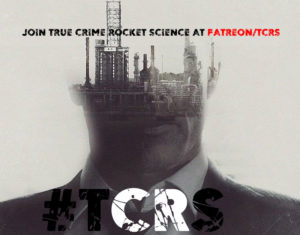True Crime Analysis, Breakthroughs, Insights & Discussions Hosted by Bestselling Author Nick van der Leek
Tag: polygraph test
Many of us, perhaps most, intuitively knew something was rotten in the state of Denmark when we first saw Watts’ seven-minute Sermon on the Porch. We didn’t know why, it wasn’t necessarily anything specific, yet there was a suspicion [if not certainty] that things just weren’t adding up.
By studying and analyzing the Sermon again and again, we became more familiar with Watts, with the content and context, and as we became experts in this piece of dialogue it was more and more difficult for microexpressions to remain hidden. The more we looked and listened, the more sure we were that he was hiding something. It turned out he was trying to conceal a triple murder.

His main ploy was to act normal, but what counted against him was:
- He acted too normal
- His version of normal didn’t meet our expectations of “appropriate” emotion. He didn’t appear concerned or overwhelmed as most people would have been had they been in a genuine missing person’s scenario
We can see that by his acting normal, he was trying to communicate that there was nothing to worry about, and that everything was probably okay. But this was an early miscalculation from him, and an early sign Watts’ ability to recognize when his chips were down was very poor.
Once the bodycam footage emerged, we quickly recognized telltale patterns in his deceits – lip licking, swaying, folding his arms.

Some of us also picked up a few others – stuttering, Watts curling his lower lip under his upper lip [a sign of stress or nervousness], looking at the sky for inspiration, throwing out his hands, shaking his head at the wrong time, appearing to smile at the wrong time, and blinking at the wrong moment. But many of these were assumptions, and subjective assumptions at that.

Now, with the benefit of the Discovery Documents, we’re able to test them.
A VISUAL POLYGRAPH
We can use what’s in the Discovery Documents to cross-reference what we know as absolute certainties of fact against the bullshit parts of his Sermon. So let’s do a bullshit check with only one piece of information, and watch for the microexpressions that leaks out.
We’ll apply our visual polygraph test to the moment when Watts explains Bella’s kindergarten attendance. The fact is the four-year-old was supposed to return to Primrose school that morning [August 13] if she hadn’t died.
Now, there are numerous texts in support of this fact [scroll to the bottom of this post to review them]. Prior to the weekend, on August 9, Shan’ann pertinently asked her husband to drive with her and Bella to be with them to share Bella’s first day of the new school year at Primrose.

At 2:42 in the clip below, during his Sermon on the Porch, Watts lies not by his denial that Bella was going to school, but the opposite. He volunteers that Bella was going to go to school, but then realizes this disclosure could be bad for him, so he tailors the end of that message by changing the timing of her return [and that’s the lie].
WATTS: Bella [long blink] was gonna start kindergarten…[pauses as he realizes he’s just said this in the past tense]…[stutters] n-next Monday…and they-they’re just getting ready to start.
So his basic tells are:
- Extended blinking while talking.

2. Looking into the sky for inspiration + stuttering
3. A lip curl at the end of the lie, as if signing it off and getting on to the next one
In terms of the semantics, can you see how this statement makes no sense?
Bella was gonna start kindergarten…n-next Monday…and they-they’re just getting ready to start…
But why would they be getting ready on Tuesday if they were going to school next Monday? If Bella and Ceecee were [are, actually] going to start kindergarten the following week, then as he was standing there, that was still true [within his spiel]. And that would mean present tense:
Bella’s starting kindergarten soon…[Bella is…]
So Bella was going to start kindergarten was a big booboo, and the stuttering, blinking, looking at the sky, and pausing, were all telltale clues that he was dissembling and trying to clean up his verbal diarrhea.
We now know Watts knew they were dead, and so he knew he’d already pulled them out of kindergarten, and he was probably nervous as hell the staff at Primrose were watching this. What about other parents, like Jeremy Lindstrom, and Shan’ann’s mother, who knew their kids had gone back to school that day [and Sandi knew the same].
It’s clear from this one lie that the kids going back to that expensive school weighed heavily on him, otherwise there would be no need for nervousness around this subject, and no need to lie about it.
So just as it’s valid to ask “Why didn’t he just get divorced”, in terms of the murders of those poor little girls, it’s just as valid to ask, “Why didn’t he just take them out of kindergarten?”
Perhaps the answer to the one question relates and interrelates to the answer of the other.








Chris Watts has been called many things, but I’m not sure whether his reputation for a photographic memory or being a number’s guy is deserved. Liars need to have good memories, and Watts is a terrible liar. What does that tell you?
Things start to really happen from this point onwards.
At around the 30 minute mark in Part 5 below, Watts actually takes the test, a critical step in his brief but spectacular undoing.
Chris Watts failed Polygraph Test + Polygraph narrative.


































© 2026 TRUE CRIME ROCKET SCIENCE
Theme by Anders Noren — Up ↑













Recent Comments